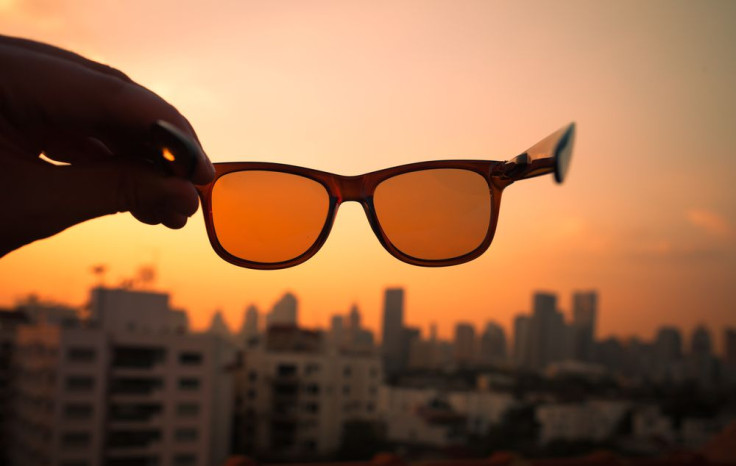Orange-Tinted Glasses Block Blue Light From Electronic Devices, Promoting Better Sleep

Staying connected 24/7 on our smartphones, tablets, and other electronic devices can make us well-informed readers but poor sleepers. Although we stay connected with the world from the privacy of our own home, these devices can intrude on the most intimate time we have to ourselves — sleep. However, according to a recent study published in The Journal of Adolescent Health, wearing a pair of orange-tinted glasses may effectively block blue light from light-emitting diode (LED) screens and prevent disturbing the sleep-wake cycle.
Our eyes have photoreceptors in the retina that sense light and dark, which signals our brain about the outside world and aligns our circadian rhythms. This signaling of light and dark helps us stay alert in the morning and fall asleep at night. This affects our circadian rhymes, which are the physical, mental, and behavioral changes that follow a 24-hour cycle that responds to the light and darkness of an environment, according to the National Institute of Health.
The blue light emitted from electronic devices has tampered with our circadian rhythm and our sleep cycles by blocking the sleep hormone melatonin. Typically, this hormone increases in the evening and helps induce sleepiness at night. However, these devices submit a sufficient amount of light to the brain, which interprets this as an indicator of wakefulness.
A team of Swiss researchers sought to investigate whether the use of blue light-blocking glasses (BB) during the evening, while sitting in front of a LED computer screen, can promote better sleep. A total of 13 healthy teenage boys between ages 15 and 17 were recruited for the study.
The boys were required to keep their regular sleep schedule at home but did not go out in the evenings or have caffeine drinks. The blue-blocker glasses were worn from 6 p.m. until bed time each evening, while the boys would log in how long they were the glasses an how much time they spent with LED and non-LED screens. They went through the weeklong study protocol twice, once wearing blue-blocker glasses and once wearing clear glasses.
Towards the end of the week, the participants spent one overnight in the lab, sitting for two hours in dim light, darkness for half an hour and then three hours in front of a backlit LED computer screen wearing the blue blocker glasses. The researchers conducted cognitive tests conducted and collected saliva samples. Following these tests, the boys went to sleep for eight hours, and then performed the same cognitive tests and gave their saliva samples similar to the night before.
The findings revealed when the boys wore their BBs, or orange-tinted glasses for a week, they reported feeling “significantly more sleepy” than when they wore clear glasses. The boys would look at their devices for a considerable amount of time before going to bed. Based on their saliva samples, those who wore clear glasses had less melatonin at bedtime compared to their counterparts who had higher melatonin levels up 90 minutes to five minutes before sleep.
“Blue blockers therefore can prevent those light responses which are not helpful in the evening hours when our body and mind has to prepare for sleep,” Vivien Bromundt, study coauthor of the Centre for Chronobiology at the Psychiatric Hospital of the University of Basel, told Reuters Health.
However, these orange glasses should not be seen as a cure-all for a good night’s sleep. Not all orange-tinted glasses are created equal nor have they all undergone the same testing to be a legitimate sleep aid. If orange-tinted glasses are not feasible, there are apps like the f.lu, which can change the bue light impact of electronic devices. Dr. Kevin Barrett, a licensed psychotherapist in Chicago, Ill., previously told Medical Daily: “…[b]efore reaching for supplements or medications, try putting away our phones two hours before bed. However, if this is not possible, Barrett recommends using the app F.lux (iPhone) or Bluelight Filter (Android), which reduce the blue light output of our screens.”
Source: Bromundt V, Cajochen C, Frey S et al. Blue Blocker Glasses as a Countermeasure for Alerting Effects of Evening Light-Emitting Diode Screen Exposure in Male Teenagers. The Journal of Adolescent Health. 2015.
Published by Medicaldaily.com



























